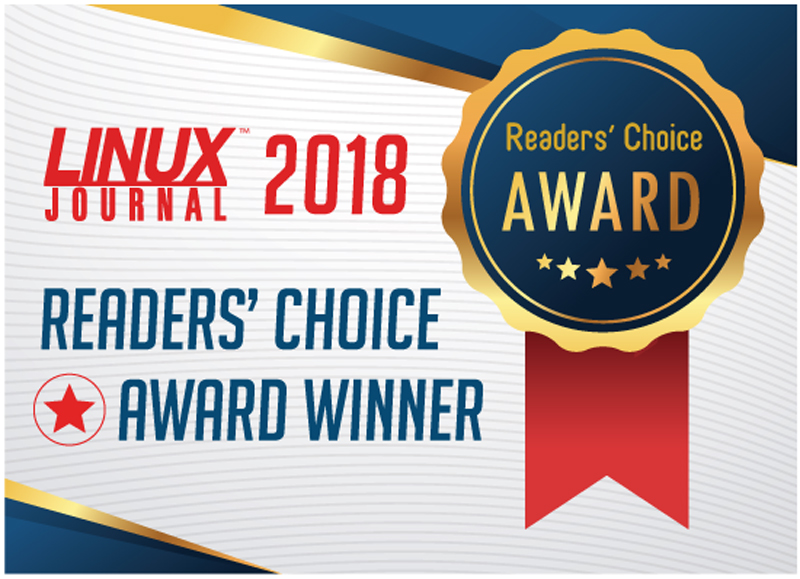


This month the categories are Best Content Management System, Best Desktop and Best Programming language. Note that all the contenders listed were nominated by readers via Twitter. Be sure to check LinuxJournal.com for new polls each week and vote for your favorites!
Unless you've been living under a rock, you most certainly have heard of WordPress, one of the most popular blogging platforms around that also happens to be 100% open source. WordPress powers 27% of the web from personal to corporate to even government sites (Whitehouse.gov for one).
In a 2008 interview, Linux Journal's Katherine Druckman asked WordPress founder Matt Mullenweg, "You frequently have reiterated your commitment to open-source ideals and GPL licensing. How has this commitment factored into the development of your company, Automattic? How do you use open-source technology to achieve your goals?"
Mullenweg responded:
When I set out to create Automattic, it was an interesting dilemma—in our society, it seemed the best way to have an impact on the world was working within a for-profit framework, but at the same time, I'd seen multiple examples of "open-source companies" suffocating the communities they grew from.
I came across an interesting hack though—by keeping WordPress.org a separate entity from Automattic and basing our business entirely on GPL code, you create a balance that aligns the fiduciary responsibilities of the corporation with the interests of the community at large. In the long term—10, 20 years from now—it still will be in the best interest of Automattic to support the broader community as much as possible, because its own business succeeds when they do.
I didn't want WordPress to be a one-company project, so by separating out the nonprofit and for-profit sides and making some explicit decisions about businesses Automattic would never enter, we created a lot of room for other companies to embrace, support and build on top of WordPress. Hopefully, we also set a good example of how to contribute back to the community.
It was the best way I could think of to ensure that the principles I believe in would endure beyond my personal involvement or control of either organization. (But I still look both ways when crossing the street.)
Congratulations to WordPress for being Linux Journal's Readers' Choice.
Thanks to its stability, performance, feature set and a loyal following, the K Desktop Environment (KDE) won Best Desktop Environment in this year's Linux Journal Readers' Choice Awards.
Linux Journal reader Larry Coombes says his vote was for KDE for a mass of reasons, including:
1) Totally configurable, which is ESSENTIAL for new users who want their Linux desktop configured to emulate the exact rendering of Windows (XP or 7) that they have worked on forever. Also, essential for when the new user turns to me and says, "Can Linux do XYZ?? Can I make it so...", with KDE, the answer is always "Yes", which is much better than explaining limitations of a desktop environment and trying to train someone, because then you hit "But I could always do this in Windows...".
2) I have tried other desktop environments, and none of them come close to KDE's keyboard-shortcut support, which is ESSENTIAL to my business. I teach young children, and I am jumping from app to app, file to file in chaos. With KDE, I can minimize touchpad operation and use a laptop as a proper, portable device. I have around 50 keyboard shortcuts to move my work forward—and to be able to use in taxis and trains!
Python wins Best Programming Language again this year in Linux Journal's annual Readers' Choice Awards. It's easy to use, powerful and versatile with a really large and active community. Having that supportive community ensures that developers of all skill levels easily can find the support and documentation they require, which feeds Python's popularity. It certainly helps that Python has something like a corporate sponsor. Python is recognized as an official language at Google, running on many of its internal systems and showing up in many Google APIs. In fact, Google's developer website offers free Python classes, videos and exercises.